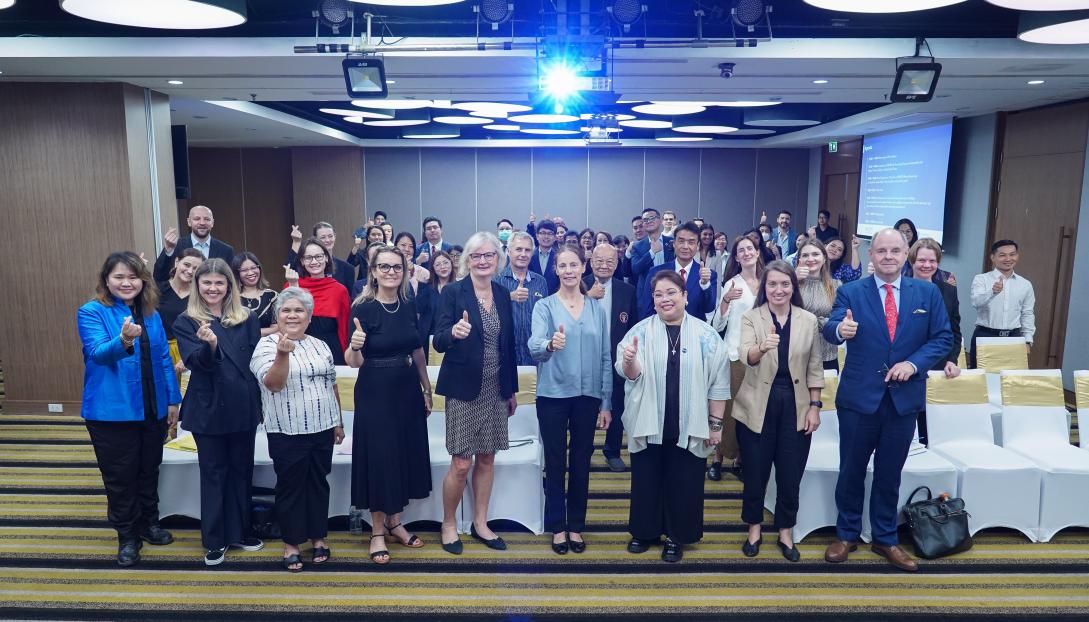IOM, EU, Sweden Launch Drive to Protect Migrant Worker Rights in Asia

Building on over a decade’s work with business to promote corporate responsibility for migrant workers’ rights, the International Organization for Migration (IOM) together with the European Union and Government of Sweden launched a new Migration, Business, and Human Rights (MBHR) Programme in Asia. With over USD 12 million in funding, this programme is financially supported by the Government of Sweden and the European Union.
Focusing on key labour migration corridors in the region, including Cambodia, Indonesia, Malaysia, Nepal, the Philippines, Thailand and Viet Nam, this five-year regional multi-donor programme aims to promote full respect for the rights of migrant workers in supply chains in Asia.
“Labour migration stands at a critical juncture in defining progress of the global economy and advancing sustainable development,” said Amy Pope, IOM Director General. “The private sector remains an indispensable partner for IOM to facilitate access to regular labour migration pathways. Not just any pathways, but quality ones, where people enjoy their full human and labour rights.”
This focus of migration, business and human rights in this region is even more critical when considering that the 2022 Global Estimates of Modern Slavery Report revealed that, out of 28 million victims in forced labour globally, Asia and the Pacific hosts the largest number - 15 million. In particular, 86 per cent of forced labour cases are found in the private sector, with migrant workers three times more likely than local workers to be exploited.
IOM has consistently highlighted that uneven governance, limited labour migration pathways and unethical recruitment and employment business practices have rendered migrant workers at greater risk of labour exploitation, hindering development outcomes for migrants, home and host countries alike.
"Business isn't just about profits; it's about people. The Private sector is a crucial partner for regular labour migration. It holds the power to shape the realities of migrant workers’ journey and influence policy outcomes,” said Mr. Daniel Hachez, Minister Counsellor – Head of Cooperation – Delegation of the European Union to Thailand. “At the EU, we strongly believe that strengthening private sector engagement not only reinforces its commitment to human right due diligence legislations but also contributes to concrete actions aimed at creating pathways to dignified and decent employment for migrant workers.”
Over the next five years, through MBHR Asia, IOM will continue working with our partners to strengthen integration of migration in the business and human rights dialogue and encourage ethical recruitment and responsible employment, while promoting regular labour migration pathways as an alternative to irregular migration.
At the heart of MBHR remains IOM’s commitment to helping all actors, especially migrant workers, realize the full potential of human mobility in line with the 2030 Sustainable Development Agenda and the Global Compact for Migration.
